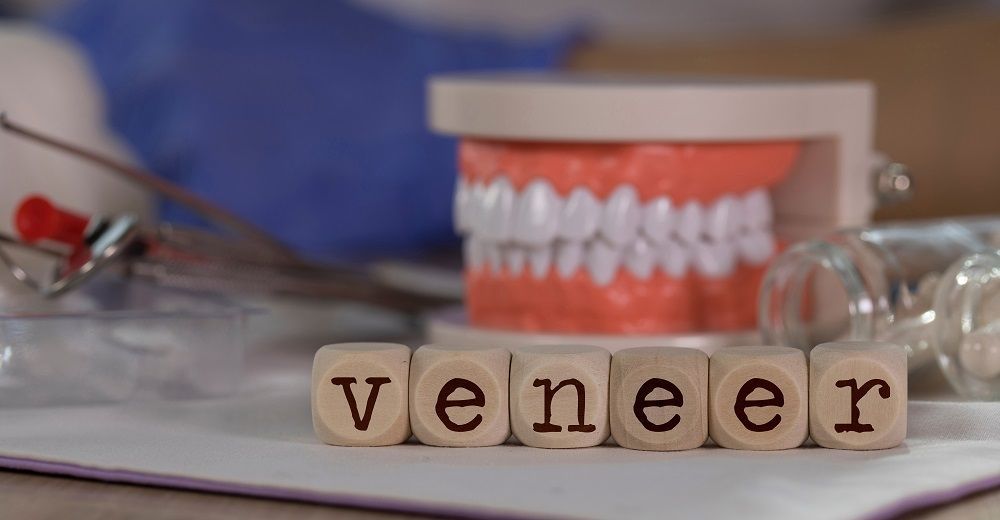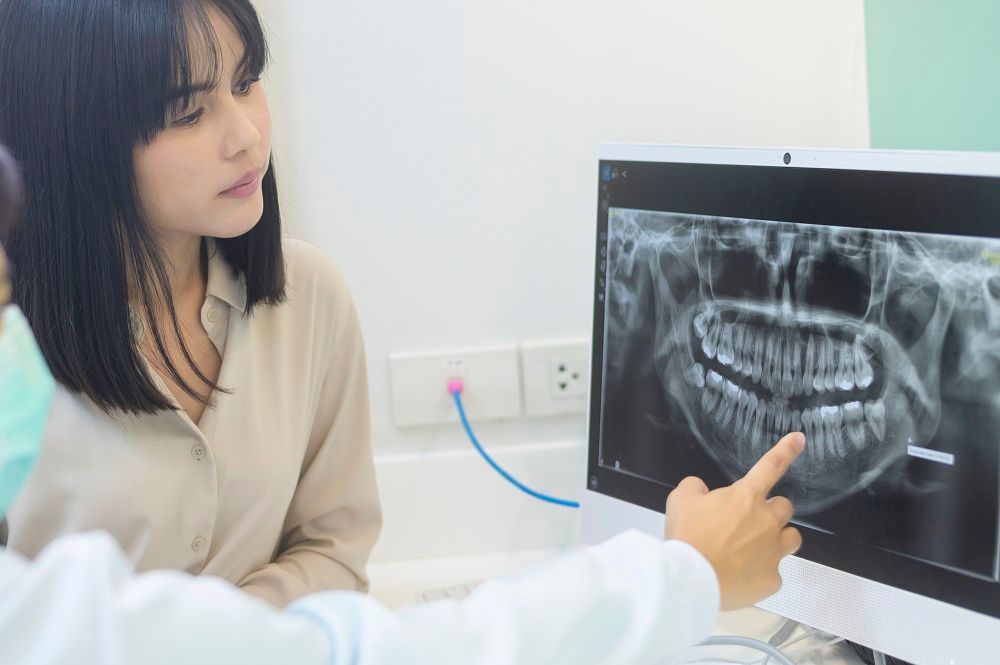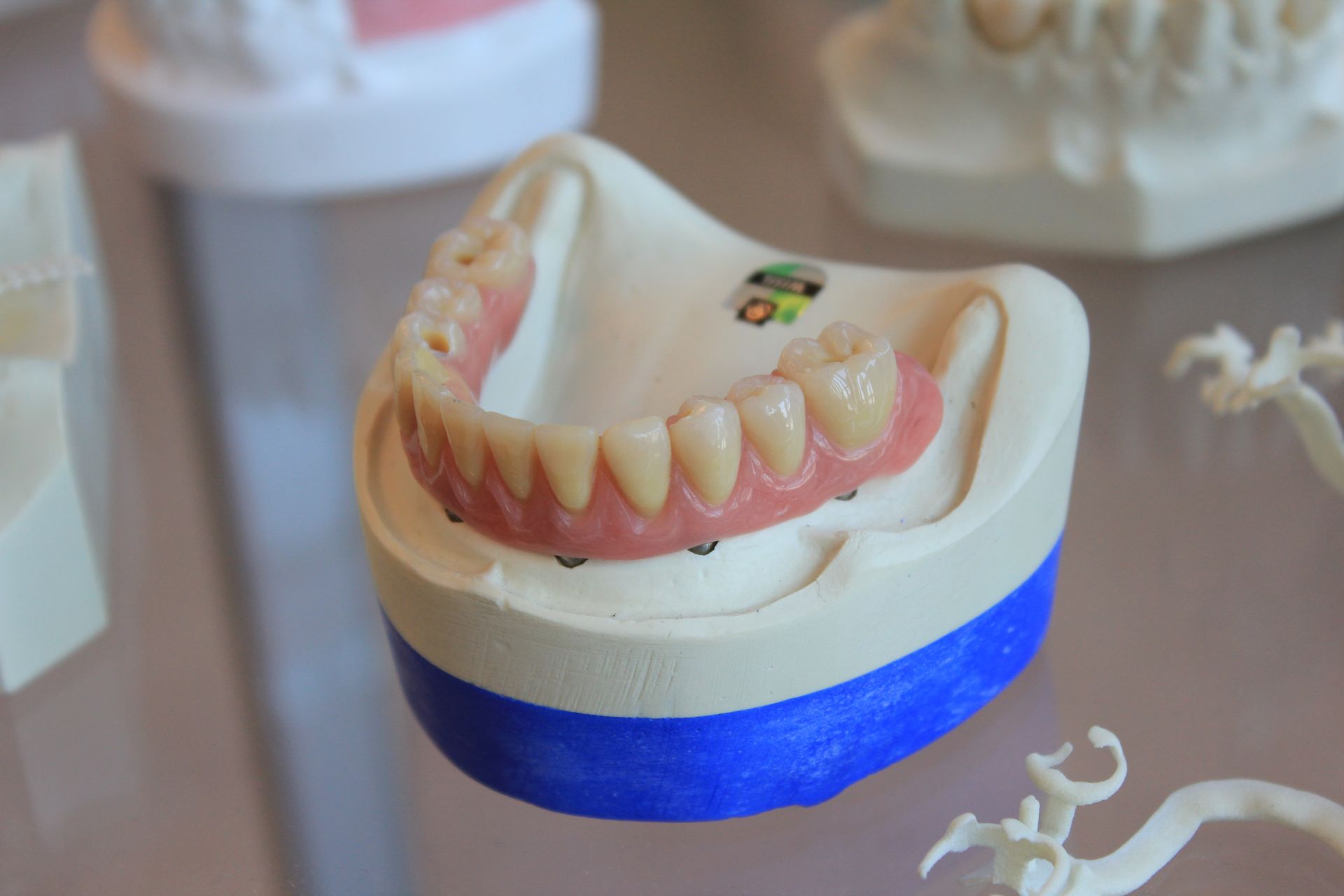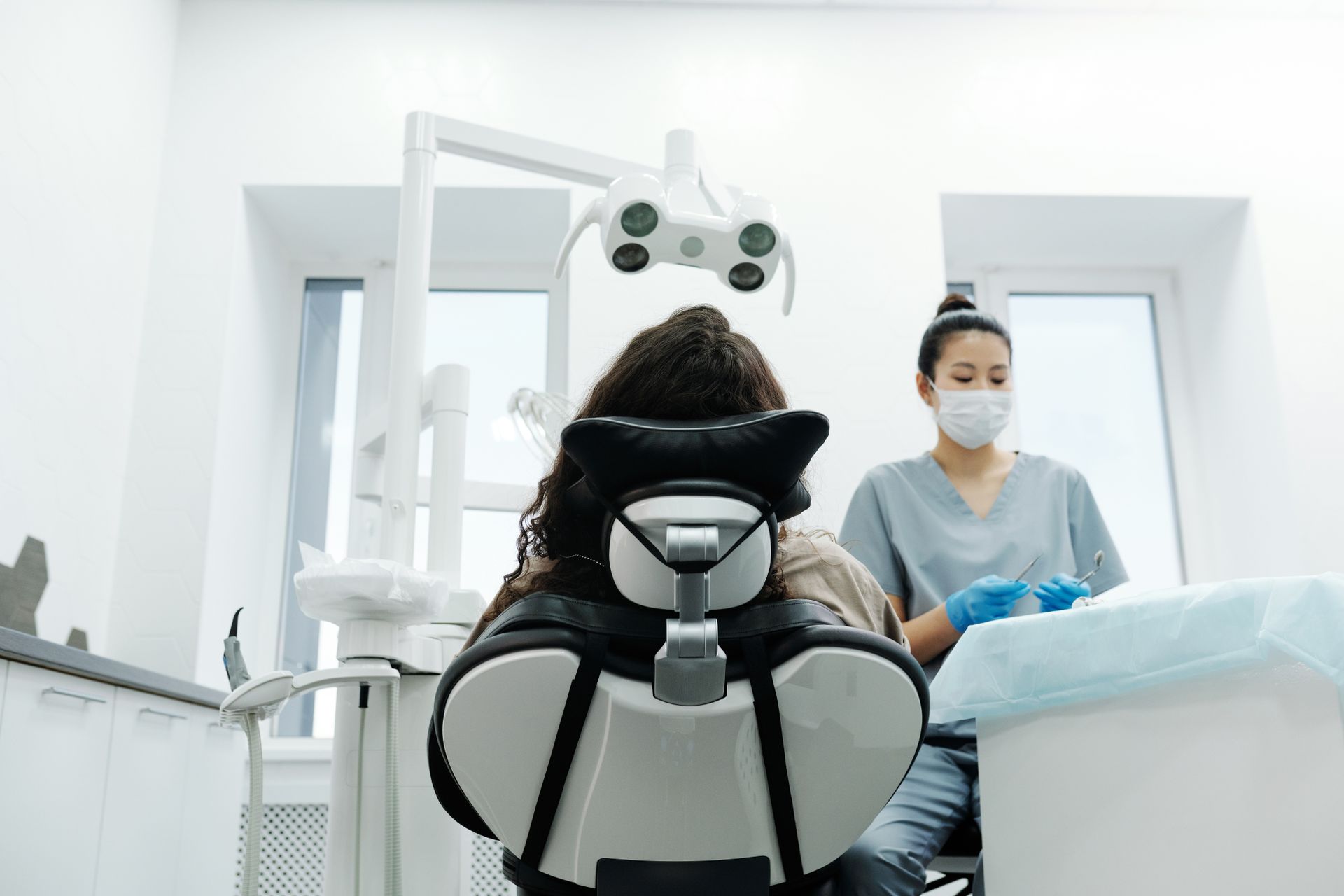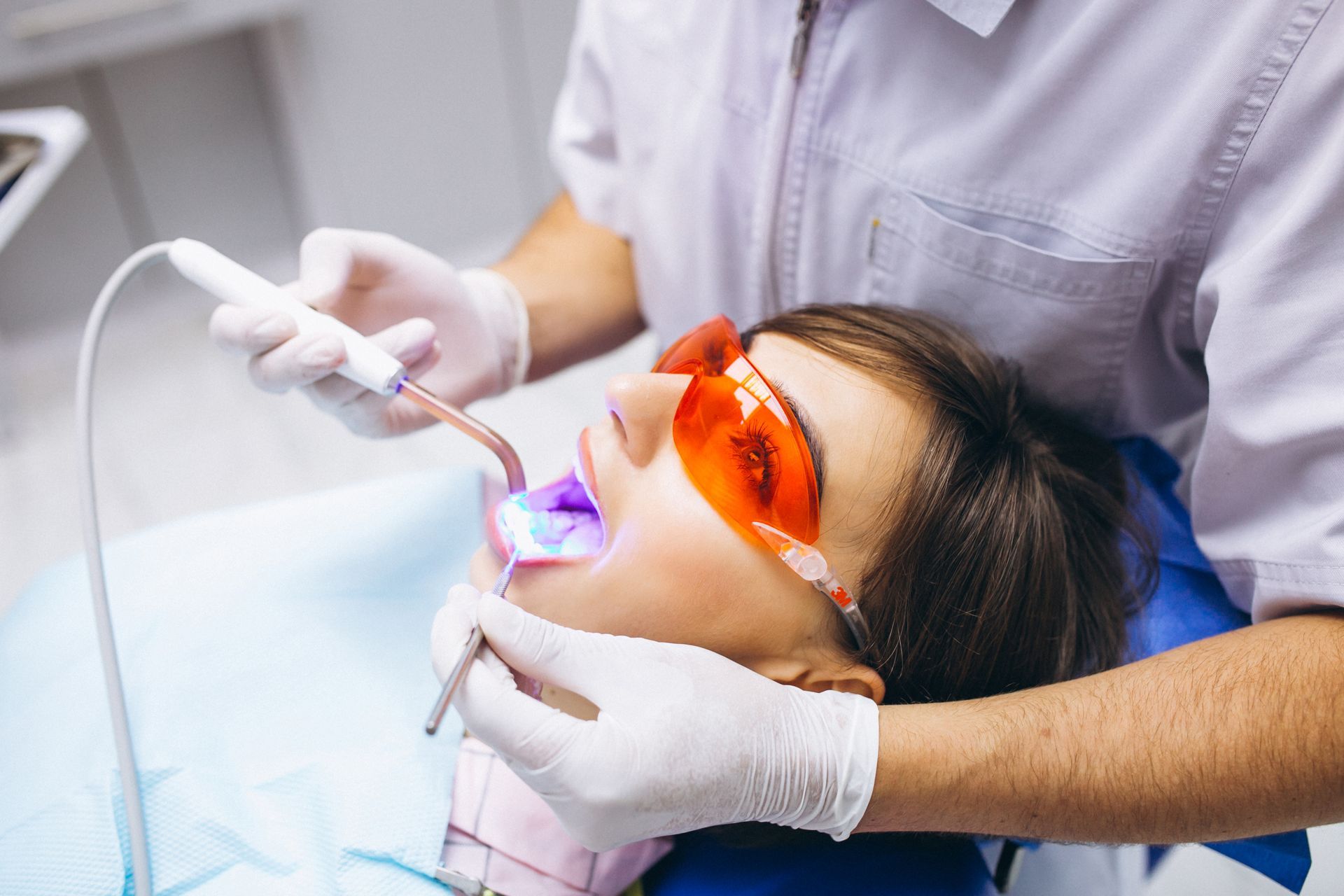Can Gum Disease Damage Be Reversed?
Symptoms of Periodontal Disease

What is Periodontal Disease?
Periodontal Diseaseis caused primarily by infections and inflammation of the gums and bone that surround and support the teeth. In its early stages, known as gingivitis, the gums can become swollen, red, and bleed. Periodontitis is a more serious form of gum disease in which the gums pull away from the tooth, bone is lost, and teeth loosen or fall out. Adults are more likely to develop periodontal disease. The two most serious threats to dental health are periodontal disease and tooth decay.
Your dentist or dental hygienist may have poked your gums during recent dental visits, taking measurements as they went. All of the probing by your dentist was done to check for periodontal disease. Dental hygienists and dentists use probes, essentially small rulers, to measure the depth of the spaces between your teeth. If the pockets are excessively deep, you can be suffering from gum disease.
Depending on how far the stages of the disease have advanced, gum disease's severity can change. When gingivitis is treated with good oral hygiene and regular teeth cleanings , the initial stage, which only produces minor inflammation, can be reversed. Periodontitis, a long-term disease, is in a more advanced stage. This disorder destroys the bone framework and supporting soft tissues for teeth. Over time, it might result in tooth loss.
Before discussing whether periodontal disease may be reversed or can gum disease be reversed, let's go over the fundamentals of what periodontal disease is and what the causes are.
Periodontal Disease Stages - Early Stage Gum Disease: Gingivitis
Make an appointment to see your Family Dentist Coppellif you start to experience tooth discomfort, bleeding during brushing, or gum recession.
Gum disease can be treated with minimally invasive surgeries and dietary modifications if discovered early. A more rigorous dental hygiene regimen under your dentist's guidance is one of the possible therapies for gingivitis.
In order to assist eliminate dangerous germs and organisms that could lead to an infection, your dentist may also advise using an antimicrobial mouthwash for a few weeks in place of a standard mouthwash.
If the condition has advanced by the time you visit the dentist, extensive gum cleaning may be necessary to reverse the disease's consequences. Scaling and root planning are part of a deep periodontal cleaning.
During a scaling process, your dentist removes tartar and plaque from both above and below your gum line using a manual scraper or an ultrasonic equipment. By smoothing the tooth root's surface below the gum line, a root planning procedure reduces the area that can buildup bacteria and plaque. Your gums can reattach to the root more firmly thanks to this process as well.
Advanced Gum Disease: Periodontitis
A significant infection of the gums, the tissue that holds your teeth in place, is called periodontal disease. If left untreated, this illness can eventually impair your jawbone, cause bone and tooth loss, and is even linked to heart and lung disease. Periodontal disease can affect anyone, regardless of age or sex, even though some practices make it more likely for someone to get it.
Treatment for this stage is very difficult, and it frequently cannot be stopped. An oral surgeon can, however, undertake a procedure known as flap surgery in which the plaque and tartar-forming areas are surgically removed and the gum is then reshaped to fit around the teeth in order to stop further decay.
Dental implantsor dentures can assist replace any missing teeth, and in more severe situations, bone and tissue grafts can be utilized to restore what the disease has taken from the body.
A dangerous infection, periodontitis. Making lifestyle changes and improving your dental hygiene practice are the greatest ways to fend off gum disease and invasive procedures like surgery. Avoid refined sugars in your diet, stop smoking, brush and floss twice daily, and visit the dentist every six months for a checkup and cleaning.
What are the Causes of Periodontal Disease?
Gum disease results from poor oral hygiene, as with most dental conditions. If you haven't been brushing and flossing regularly, the bacteria in your mouth may have created plaque, which could accumulate on your teeth and harden are periodontal disease causes.
Once plaque has accumulated and hardened into tartar, it is impossible to remove on your own. The tissue holding your teeth in place is attacked by tartar, which can only be removed by a professional cleaning (your gums).
In addition to poor dental hygiene, smoking, diabetes, other illnesses, and several drugs that reduce salivation are major contributors to gum disease. Additionally, certain persons are genetically predisposed to periodontal disease.
How can you Know if you have Periodontal Disease?
As previously stated, gum disease can be reversed in its early stages. Therefore, it is much more important to learn how to recognize the symptoms of gum disease. These consist of:
1. Poor breath
2. Higher sensitivity
3. Red or swollen gums
4. Large amounts of tartar on the teeth
5. Regular bleeding of the gums after brushing or flossing
Can Gum Disease be Reversed
When it comes to correcting and preventing gum disease from returning, good dental hygieneis essential. A minimum of twice daily brushing and once daily flossing is recommended for the mouth. Once the bristles start to fray, it's time to replace your toothbrush because this will make it less effective at eliminating plaque and food particles.
Gum disease can be recovered by maintaining continual oral moisture. Saliva is a natural cleaner that clears the surfaces of the teeth by eliminating bacteria and food particles. It supports the resistance against tooth decay and any gum disease. The gum disease treatment advises patients to drink a lot of water throughout the day and chew on sugarless gum to encourage salivation. An antibacterial mouthwash can also help to lessen oral microbes.
Patients can also combat gum disease by eating foods that strengthen the immune system. As a result, the disease's course is slowed. Foods high in vitamins, such as meats, fish, dairy products, and fruits, should be consumed by those attempting to treat gum disease.
Quitting smoking improves periodontal health, increasing the likelihood that a patient may be able to reverse gum disease.
What a Dentist can do to Help
Regular dental exams are very helpful in the fight against gum disease. The dentist Coppellexamines the patient's mouth throughout the session to seek early indications of oral health problems. The dentist can also do gum therapy , which cleans the surfaces of the teeth of tartar and plaque. These are the main reasons why tooth decay occurs.
Compassionate Gum Therapy in Coppell, TX
Getting quick treatment can mean the difference between being able to reverse gum disease and having to live with it for the rest of your life if you have seen any signs and symptoms. Visit a coppell dentist today for a diagnosis and treatment right away. The sooner you can schedule an appointment , the better your chances are of saving your teeth and maintaining your oral health. Take the first step in treating your periodontitis by talking to us today!

